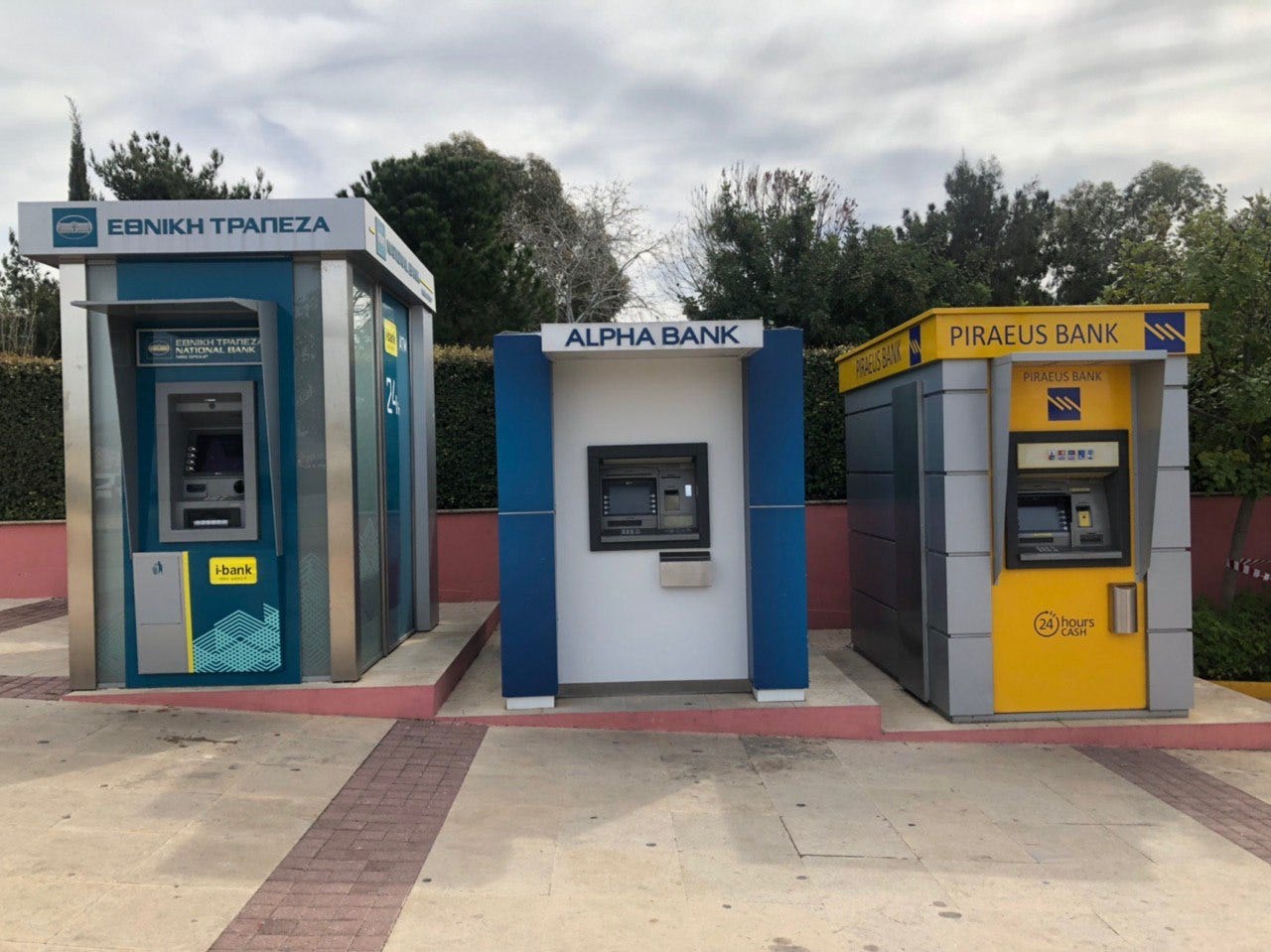
Let’s make a Greek salad: first throw in the heavy financial crisis with culmination in 2015, then add the cruel limit of 60 euros per day per card to take the cash out of ATMs, cut the possibility for outgoing money transfer, pore in a
little bit of anxiety and panic, add bulks of the bank card acceptance infrastructure upgrade, and finally add a tablespoon of e-commerce. Sprinkle with a little bit of ‘I got money, I can’t get my cash, but the cards work fine’ on top. And that’s
how you make the cash-reliant country to switch to bank card payments, no matter young or old, in just 3 years.

That’s the story of Greece, where the modern life divided into before 2015 and after 2015. Where there are only 4 systemic banks left after all the
mess — Alpha, National, Piraeus, Eurobank. The economy is still far from perfect state, but the money usage issue, well, that seems to be revolutionized. Mostly everywhere now the cards are accepted, the contactless is supported, virtually everyone
has a card (debit mostly) and uses it. Offline and online.

Well, local e-commerce is developing too. Greek have skroutz.gr which started as a price comparison, and now seems to become a marketplace, e-food.gr for
food delivery, viva.gr for various tickets and events. Hell, even European electric scooters craziness got into Athens just this spring, available for rent through the app, like proper hipsters
should.
Now, the e-commerce payments scene is traditionally served by PayPal — no explanation needed. Then an oldster Viva Wallet— same tickets aggregator that got
the e-money license and actually slowly became more of a b2b solution for websites and offline SMBs, supplying them with the bank card payments, corporate expenses programs and IBANs.

Interesting thing happened with the sharing economy platforms. Even a year ago Uber ran, aiming to get a market share, however, the regulatory loophole they used got
shut down due to taxi companies lobbying, and now well, there is no more Uber. There is Beat. Unfortunately, Beat only aggregates the taxi parks, not allows individual drivers
to earn some money, but hey, same thing I’ve seen in Istanbul. Back to hailing on the road, guys.
Airbnb, however, also used a regulatory loophole, and in times of stress and uncertainty actually became
this huge chunk of property owners economy, and a solid investment case. It is actually called an Airbnb fenomenon.

In fact, Airbnb as the immediate return investment became so popular, there was a problem for locals to find a long-term rent. Whoever had any apartment in the touristy places would move out and rent that on Airbnb, earning way more they could ever imagine.
Airbnb could have their business shut down as Uber had, but somehow they escaped this fate. Now the Airbnb rent is legalized, taxes implied, and the tax burden is still less than for hotels (which does not make them happy), and enough to make margin. Happy
story.
That’s all folks, stay tuned, and enjoy the Greek salad.

----------------